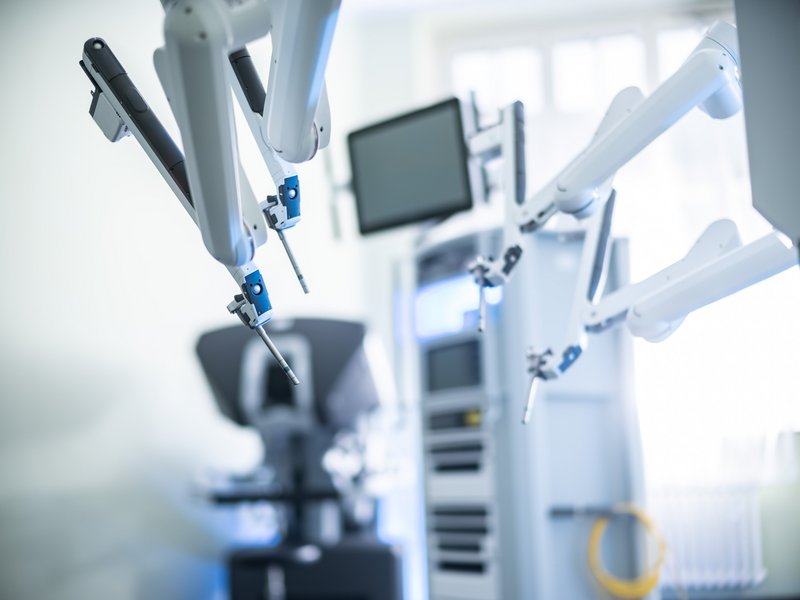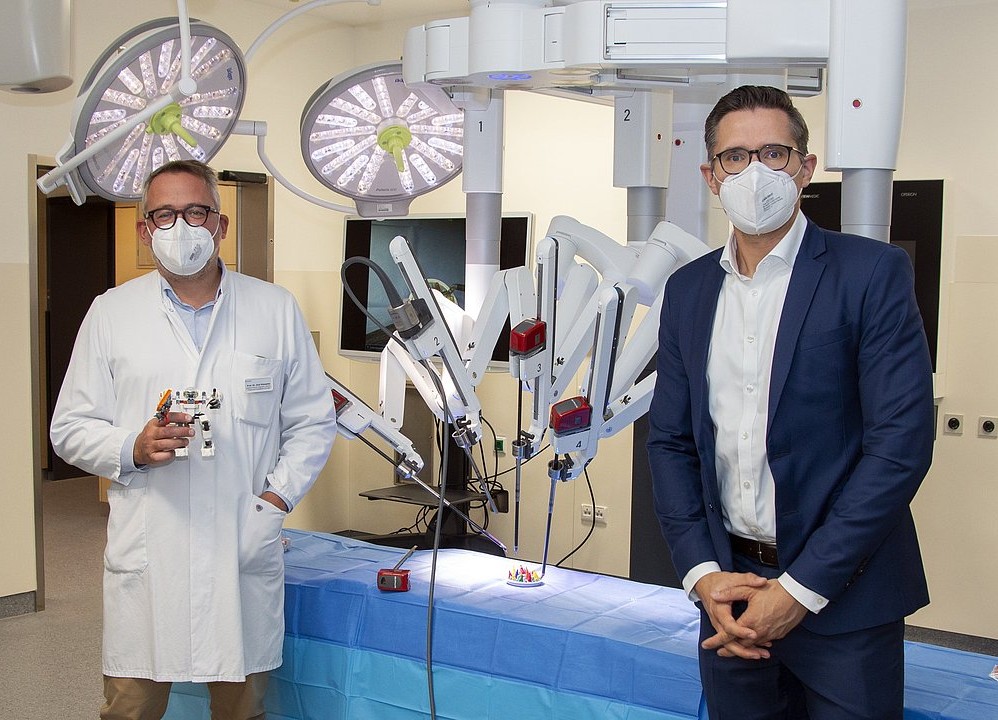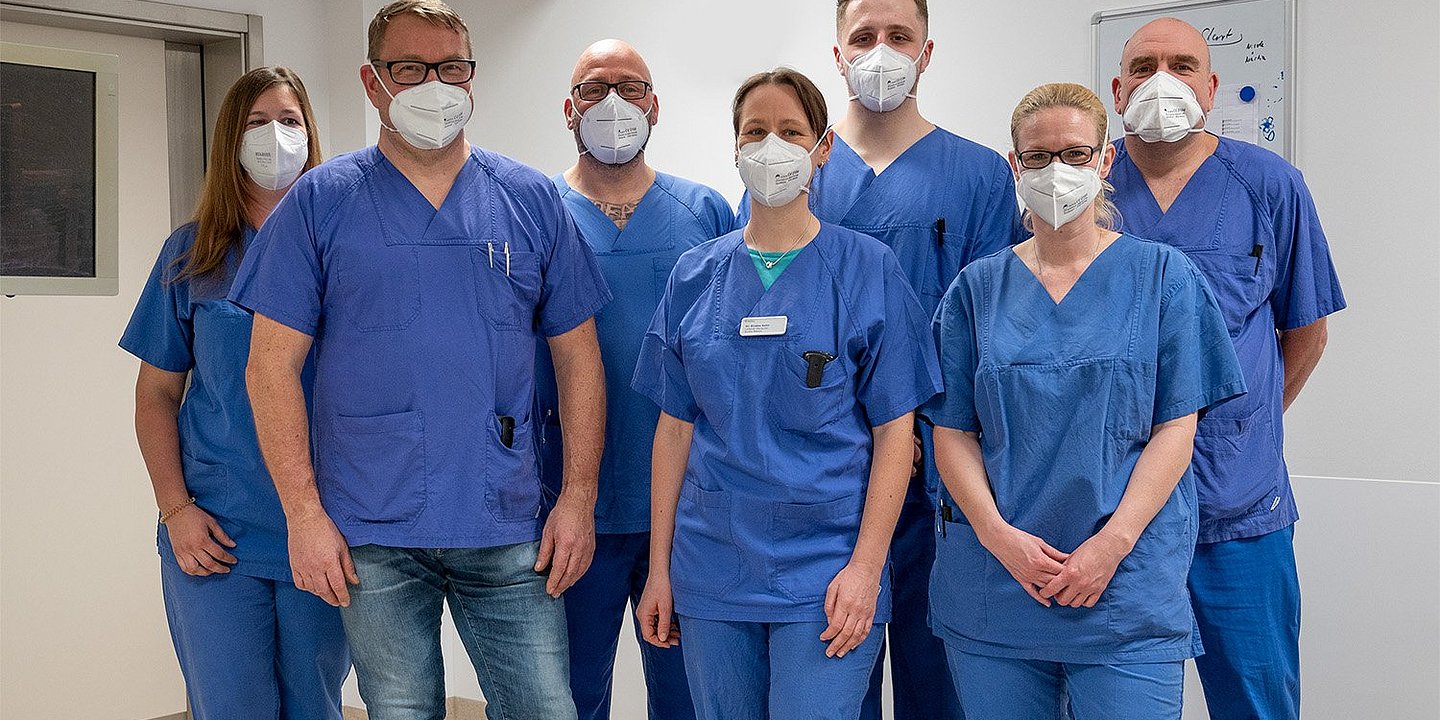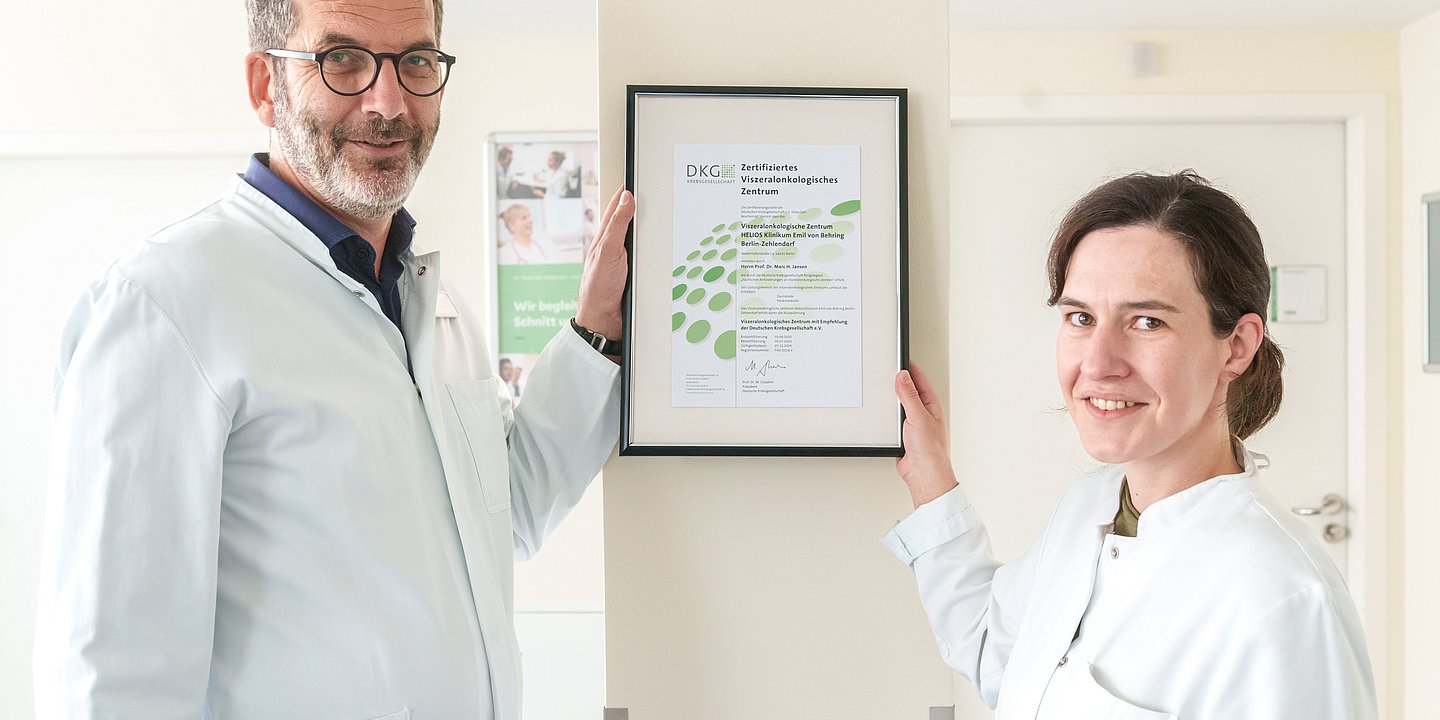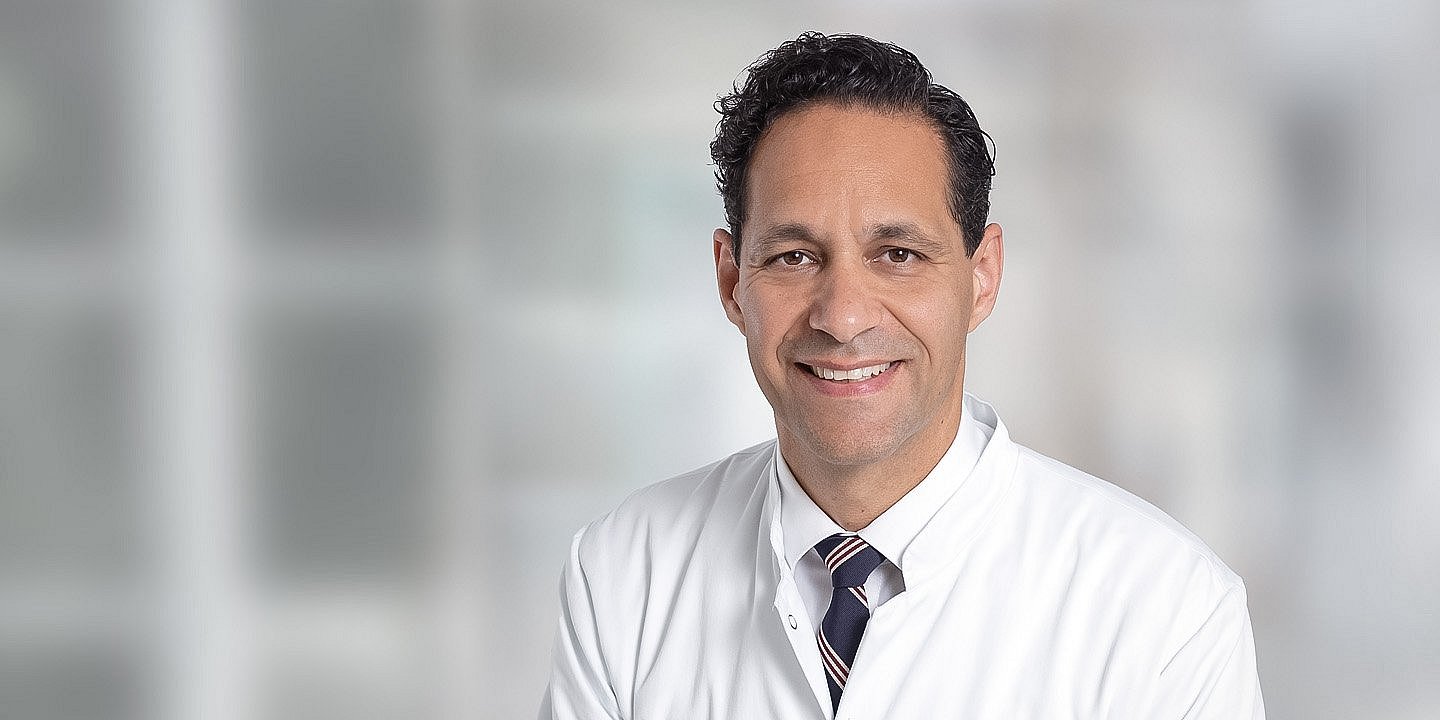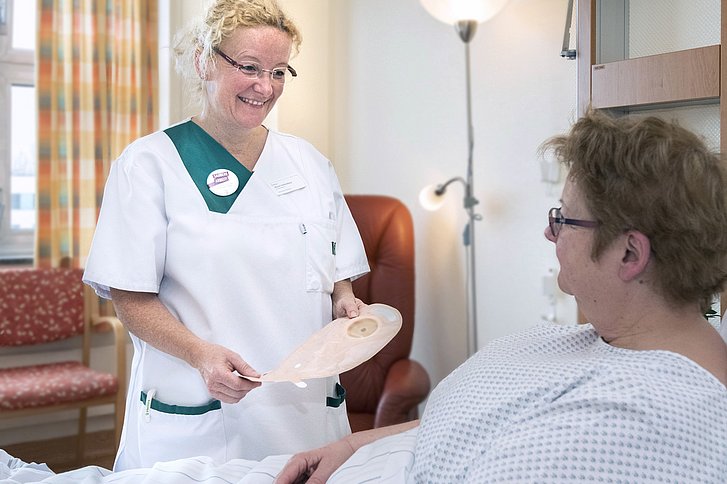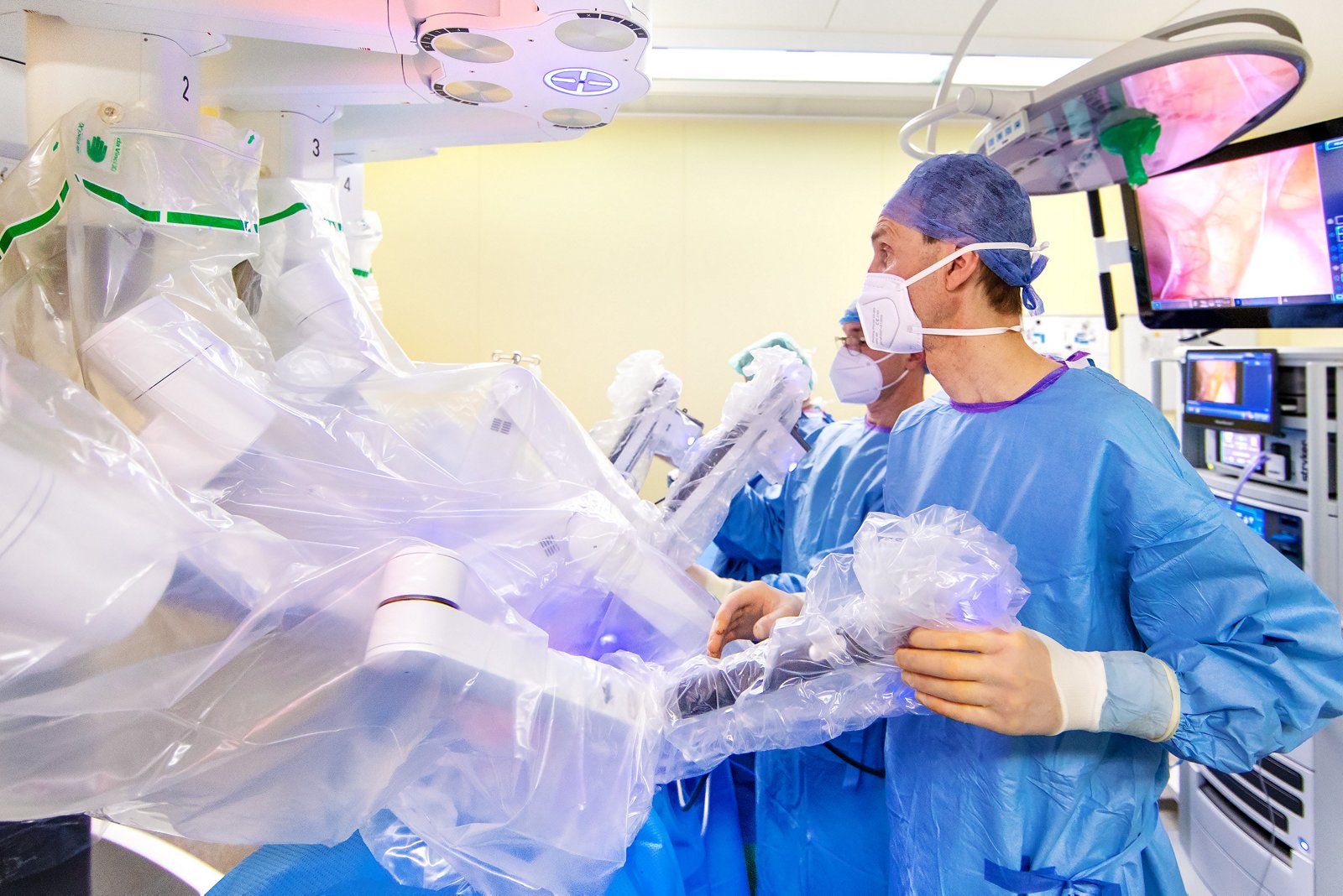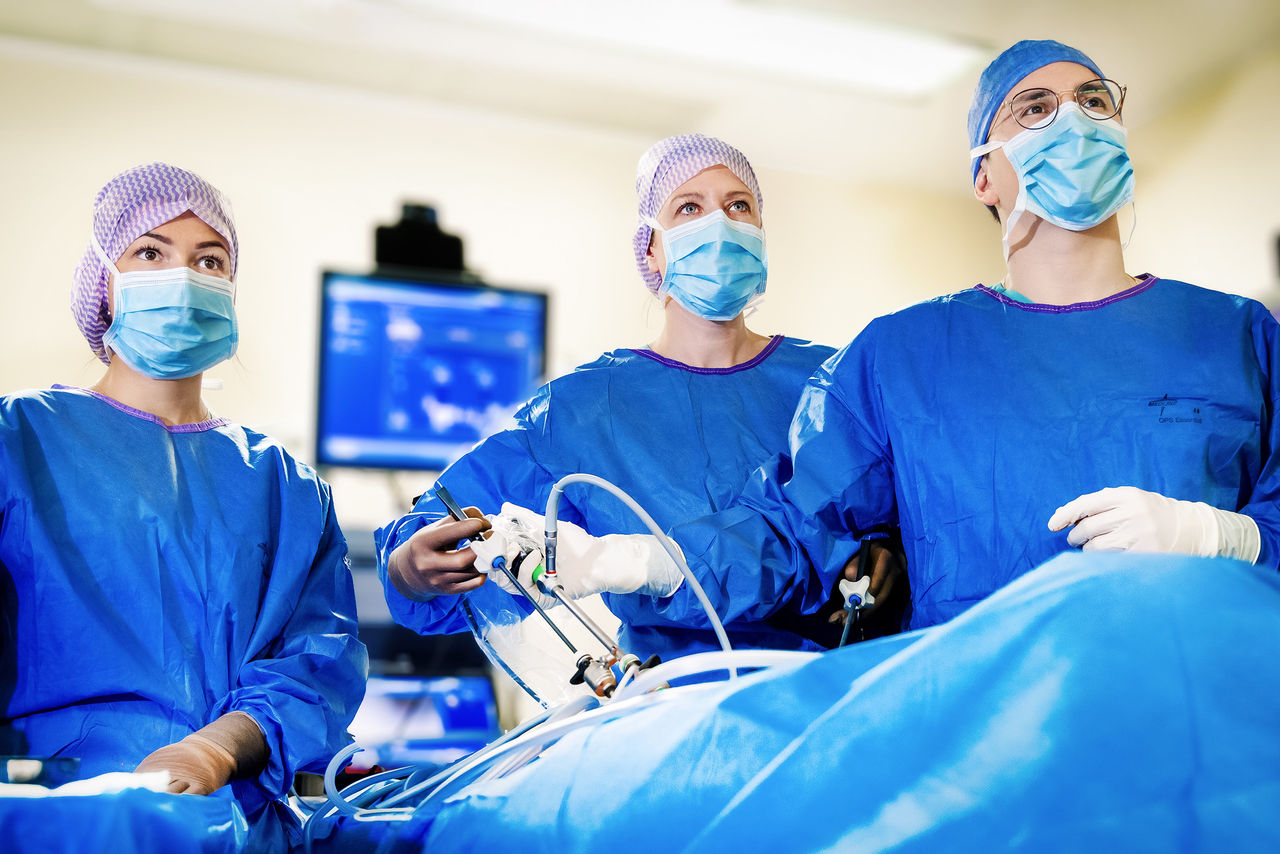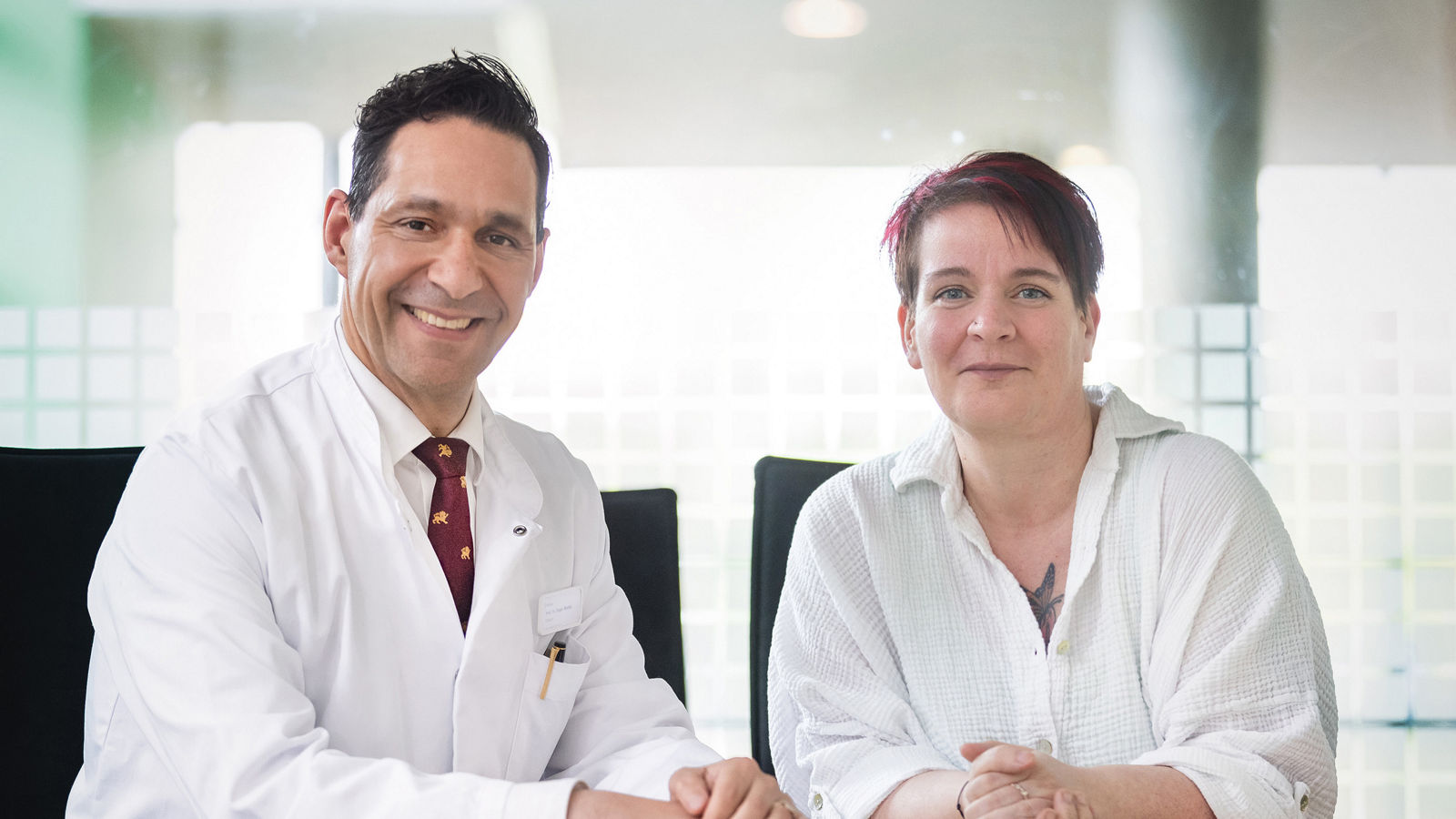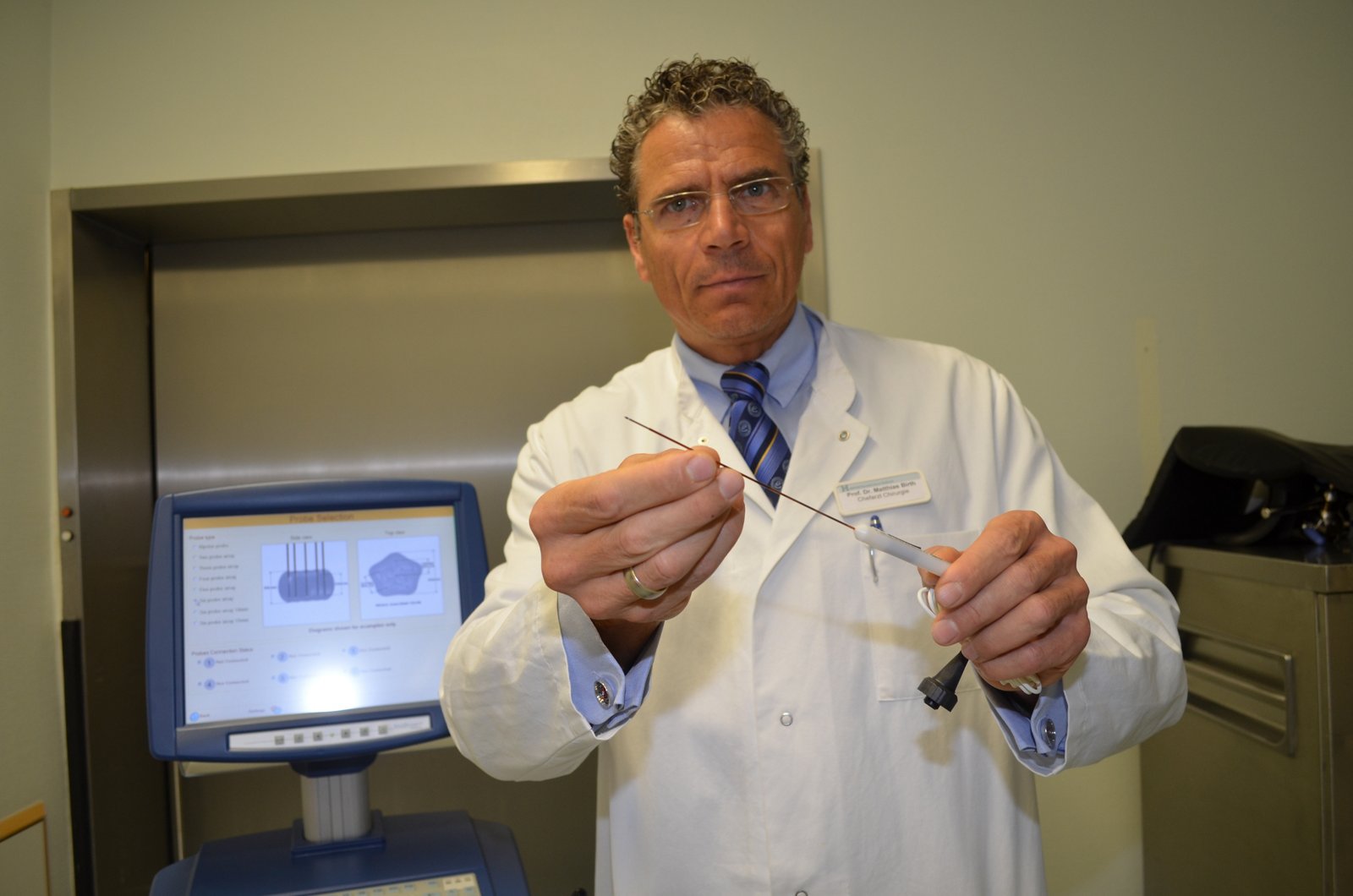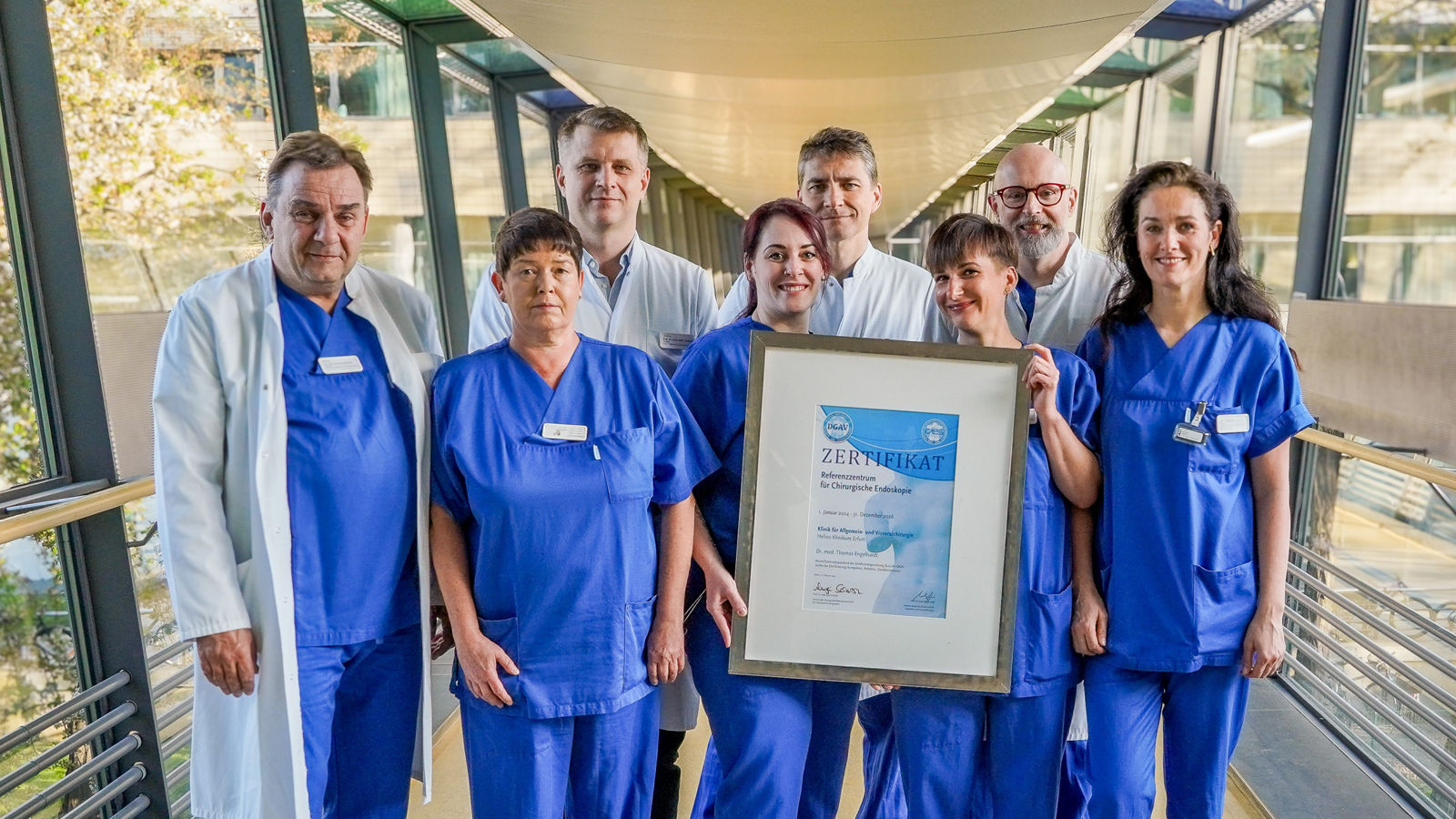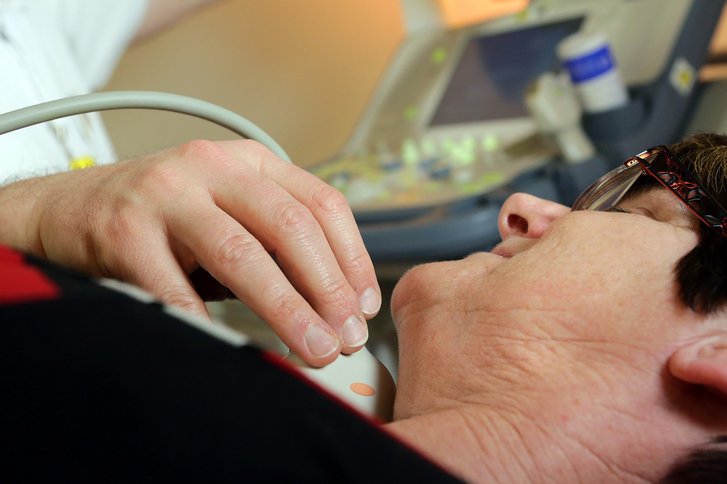
Hypothyroidism: Symptoms in women
Almost every tenth woman suffers from hypothyroidism. This means that women are affected by this disease significantly more often than men. Our head physician at the Clinic for General and Visceral Surgery at the Helios Hospital Rottweil explains which symptoms apply to women in particular and what patients should look out for.
The female body is subject to various hormonal fluctuations in the course of a lifetime. Be it pregnancy, which upsets the hormone balance, menopause or taking hormones for contraception. A small organ below the larynx plays an important role: the thyroid gland. It produces the two thyroid hormones T3 (triiodothyronine) and T4 (tetraiodothyronine or thyroxine) and releases them into the body. In the case of hypothyroidism, hormone production is disturbed.
Hypothyroidism is usually not curable, but can be treated well with the help of medication. It is therefore all the more important to know how the metabolic disorder manifests itself in women.
Women should watch out for these symptoms
Thyroid hormones affect the cardiovascular system, many metabolic processes and also the psyche. Therefore, the effects can affect the whole body.
The most common symptoms of hypothyroidism at a glance:
- Weakness in performance
- Lack of concentration
- Permanent fatigue
- increased sensitivity to cold
- Hair loss
- depressive moods
- Weight gain
- Swollen limbs
- Constipation
- Dry, rough skin
- Circulatory disorders
- Weight gain
- Cycle disorders
- Loss of libido
- Heavy menstruation
- Infertility
What are the causes of hypothyroidism?
Hypothyroidism can have various causes. There are both congenital and acquired disorders of the metabolic organ.
Experts distinguish between primary and secondary malfunctions:
Primary malfunction: The reason for hypothyroidism is in the thyroid gland itself. This form occurs most frequently.
Secondary dysfunction: Secondary hypothyroidism occurs less frequently and can have various causes, most of which can be attributed to the pituitary gland or the hypothalamus.
Congenital disorders of the thyroid gland
If the thyroid dysfunction is already congenital, the defect has a lifelong impact on the patient.
The following factors may underlie impaired congenital thyroid function:
- Thyroid gland produces too little or no hormones at all
- Change of thyroid tissue with loss of function
- Thyroid gland absent (athyreosis)
- Pregnant woman receives too high a dose of therapy for hyperthyroidism, so that the child develops hypothyroidism in the womb
Acquired disorders of the thyroid gland
Even a healthy thyroid gland can develop a malfunction in the course of life. This can have various causes.
The most common causes of acquired hypothyroidism are:
- Hashimoto's thyroiditis: Hypothyroidism can result from chronic inflammation of the metabolic organ. In the autoimmune disease Hashimoto's thyroiditis, the body produces special antibodies that attack its own thyroid tissue. As a result, the amounts of thyroid hormones are insufficient. Why the body forms antibodies in the autoimmune disease has not yet been scientifically clarified.
- Therapy errors: Acquired hypothyroidism can also be the result of previous medical treatment. This is the case, for example, if hyperthyroidism is treated "too strongly". Then hyperthyroidism can turn into hypothyroidism. Furthermore, it is possible that irradiation of the thyroid gland with radioactive iodine or an incorrectly dosed drug treatment disrupts the production of hormones in such a lasting way that an underactive thyroid gland develops.
- Thyroid surgery: Thyroid surgery, for example for goiter, can also lead to hypothyroidism if not enough healthy thyroid tissue can be preserved during the surgery.
- Iodine deficiency: The thyroid gland needs iodine to produce thyroid hormones. People who take up too little of the trace element due to a poor diet can develop an iodine deficiency and subsequently hypothyroidism. In Germany, iodine deficiency due to poor nutrition is very rare.
Diagnosis
In order to diagnose hypothyroidism, a detailed medical history by the general practitioner is important and indicative. A simple blood test can provide initial indications. "First, the so-called TSH value is measured. If this is conspicuous, the thyroid hormones in the blood are determined," explains René Hodina, head physician of the Clinic for General and Visceral Surgery at the Helios Clinic Rottweil. The normal range of the TSH value is between 0.4 and 4.0 milliUnits (mU/l) per liter. The blood values TSH, fT3 and fT4 are also in the foreground. For further diagnosis, the blood is tested for certain antibodies that are often the cause of hypofunction. The patient is also usually examined physically. An ultrasound of the thyroid gland is often performed, which allows the size and condition of the organ to be assessed.
Here's what women with hypothyroidism need to watch out for
An underactive thyroid gland can affect many areas of women's health. Insufficient secretion of the hormones T3 and T4 can cause menstrual disorders, hair loss, skin changes or even sexual dysfunction. In addition, the probability of becoming pregnant is reduced.
Unnoticed hypothyroidism during pregnancy is serious. A deficiency of thyroid hormones can cause miscarriages and premature births as well as severe damage to the unborn child.
It is therefore important for affected women to have their blood values checked regularly and to maintain a close exchange with the attending physician. The individual situation should be discussed in a gynecological practice, especially if the woman wishes to have a child.
Therapy of hypothyroidism
Hypofunction of the metabolic organ must be treated throughout life. However, adapted hormonal therapy in the form of tablets enables sufferers to lead a normal life without restrictions.
Treatment with L-thyroxine
In hypothyroidism, the body's own hormone L-thyroxine (levothyroxine) must be replaced by tablets. This is also referred to as substitution therapy. The hormone contained in the tablets corresponds to the body's own thyroid hormone. Substitution normalizes the metabolic balance and the patient can lead a normal life. The artificial hormone acts like the natural thyroid hormone thyroxine (T4) and is partially converted into the hormone T3 in the body. Side effects are rare when taking L-thyroxine. However, it is important that an expert finds the right dose for the patient and checks it regularly. In addition, the thyroid patient must take the tablets reliably. When a woman needs thyroid hormones depends on factors such as age, concomitant diseases or possible pregnancy.
L-thyroxine should be taken before breakfast on an empty stomach. With few exceptions, it must be taken for life.
Treatment of hypothyroidism in pregnant women
Pregnancy means many hormonal changes for the expectant mother. The thyroid gland also adapts to the new situation. "Due to the increased metabolic processes, the need for thyroid hormones can be up to 50 percent higher during pregnancy," explains head physician René Hodina. An enlarged thyroid gland is therefore considered normal during pregnancy. At 200 micrograms per day, a pregnant woman's iodine requirement is significantly higher than that of a woman who is not expecting a child. After consultation with the doctor, it may therefore be necessary in individual cases to take iodine in tablet form. The rising pregnancy hormones HCG (human choringonadotropin) and estrogen also change the hormone values of the thyroid gland. Therefore, during check-ups of the thyroid gland during pregnancy, not only the hormone TSH should be determined, but also the free thyroid hormones T3 and T4. In addition, ultrasound examinations of the thyroid gland during pregnancy can be useful.
A thyroid condition can also occur for the first time during pregnancy. Regardless of whether hypothyroidism is diagnosed during pregnancy or before, it is important to monitor all thyroid values closely. This is because the thyroid metabolism is also constantly changing due to the growing baby. If sufficient iodine intake is ensured and the thyroid metabolism is well regulated, the baby can develop in a physically and mentally healthy manner despite hypothyroidism.
The thyroid gland of breastfeeding women
A mother with hypothyroidism can breastfeed without restrictions even if she is taking L-thyroxine - provided the dosage is well adjusted. As long as affected mothers feed their baby through the breast, the hormone level should be checked about every three months.
A hormone imbalance of the thyroid gland can lead to too little milk being produced. Consequently, the child gains weight poorly. The right amount of medication for the woman is therefore very important.
As long as a mother is breastfeeding her child, she should not be examined or treated with radioactive iodine. However, alternative examination options can be used.
Desire to have children with hypothyroidism
"In up to ten percent of women with an unfulfilled desire to have children, the cause is a disease of the thyroid gland," explains head physician Réne Hodina. With hypothyroidism, ovulation and the menstrual cycle can be irregular, which makes pregnancy considerably more difficult. Moreover, not only the TSH value plays a role in follicle maturation, but also the value for free triiodothyronine (FT3). Both are disturbed in an underactive thyroid gland, which impairs the development of the egg.
What does untreated hypothyroidism lead to?
Hypothyroidism that is not treated can lead to severe impairment of all body processes with pronounced physical and psychological symptoms. The desire to have children is impaired and an existing pregnancy is exposed to many risks. The psychological effects can be massive. Thus, hallucinations and delusions can occur, but also the own personality and the perception of the environment are often strongly affected. The face, eyes or tongue can swell considerably, and in severe cases there is water retention in the body tissues (edema). The heart can also be damaged if the metabolic organ is underactive and untreated. Réne Hodina, who also heads the intestinal center at the Helios Klinik Rottweil, says: "In addition, depending on the severity of the hypofunction, the metabolism is slowed down, making it more difficult for vitamins and minerals to be absorbed by the body. Thus, deficiency symptoms often occur." In extreme cases, the symptoms can also lead to comatose states.
To which doctor for hypothyroidism?
For a definite diagnosis, endocrinologists or radiologists may be required in terms of ultrasound and scintigraphy.
Hypothyroidism can have various causes and affects the entire body. It can be treated well and does not mean any restrictions for the affected person as long as the hormone substitution, usually in the form of L- thyroxine, is well adjusted. Especially in women, regular examination of thyroid hormones and an ideal dosage of L-thyroxine is important. In this way, nothing usually stands in the way of a desire to have children. If left untreated, hypothyroidism can have serious consequences.
-
Do you need more information about Helios Hospitals or do you want to schedule your treatment?
Please contact our Helios International Office. We will gladly advise you!


